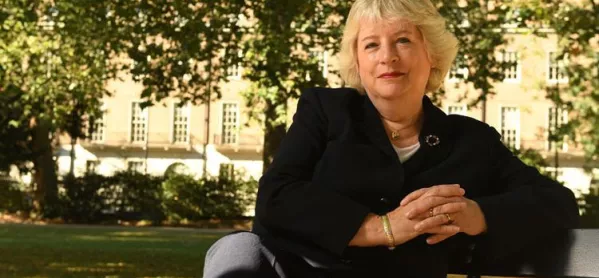- Home
- ‘Teachers must celebrate difference in pupils’ learning, rather than demanding conformity at all costs’
‘Teachers must celebrate difference in pupils’ learning, rather than demanding conformity at all costs’

Do we really want all our children to think in the same way, perform in the same way, behave in the same way?
Divergent thinkers enable society to move forward, to invent and to see the world differently. They may be challenging to teach, but these children deserve to be valued and enabled to flourish. Similarly, children with special educational needs and disabilities (SEND) deserve our highest expectations and respect with certainty that the quality of their educational experience and care matters to us. As soon as we allow an economic model to drive our educational priorities, we risk creating a dystopian form of society.
Thinking about classes I have taught and children who I meet in my new role, it is those who find it hard to submerge themselves totally into a class persona who are the ones who add something different. They often bring a spark, force us to engage with them uniquely, disrupt our plans.
Of course, if we want to place efficiency first, these children are inconvenient. They may not learn at the same pace as others - either far too quickly or slowly; they may feel compelled to tell you and anyone else who will listen about something that is burning them up so much that they cannot stay quiet.
Ironically, some children, tussling with intellectual dilemmas and with an intense desire to acquire knowledge, may feel out of place in school, and indeed, may underperform in tests. One of my Year 6 students, Maria, loved problem-solving and reportedly decided to start from the back of the paper when she sat an entry examination for secondary school. Boredom through gathering easy marks evidently was a worse prospect than tackling interesting time-consuming questions.
‘Peter refused to sit still - now he’s a Cambridge PhD’
I recall teaching Peter in key stage 2. He loved science and technology and would take almost anything to pieces, to delight in its construction and to enjoy the puzzle of piecing it back together. Socially, he was awkward. He chewed his nails, refused to sit still, was irrepressibly excitable and loathed any form of written work. His exercise book was full of crossing out and reworking. The presentation in his books was appalling. He was an avid reader and frequently became so absorbed that he had to be reminded to put his book to one side and participate in lessons. I have recently heard that Peter, having gained a PhD from the University of Cambridge, is contributing to important scientific advances. It occurred to me that the other polite members of my class, who sat quietly and produced beautiful writing, are unlikely to be contributing to scientific knowledge in a similar manner.
We need to remind ourselves that learning is often frustratingly messy, may take place at inconvenient times and is rarely linear.
To teach and learn without limits is to place trust and empathy first, within a culture of high ambition for all. Essentially, if we believe that labelling children sets limits then we need to seize “transformability” as a means to see what might be possible, rather than focusing on a perceived deficit.
The role of the teacher is complex.
We need to recognise that diversity within the community of the classroom is an opportunity and is best embraced as such. Where children are able to build a sense of personal agency, they take the best of what the teacher offers and become intrinsically motivated to learn more. When the school is forgiving of difference and recognises that collectively everyone benefits from other ways of seeing, then tolerance, acceptance and mutual respect is built.
To be a professional is to continually appreciate the necessity of building and enhancing one’s own expertise. Teaching children like Peter is difficult. They often rebel against norms and may find it difficult to relate. However, when we can accept that their passions and interests are important, we can learn to respect their individuality and seek every opportunity to challenge and broaden their intellectual development whilst enabling their talents to flourish. If we foster recognition that difference enriches, rather than demanding conformity at all costs, we model a micro-society within schools that celebrates alternative thinking. In the future, robotic artificial intelligence will only be advanced by those capable of “thinking the unthinkable”.
When I look back over my career as a teacher, I know that it will be children like Peter and Maria that I shall remember the most. Sometimes this will be because I found them a constant challenge and sometimes it will be with recollections of what it felt like when I saw them achieve something that others may have thought was impossible.
It is for this reason that I am proud to call myself a teacher. We truly have the best possible job in the world if we celebrate difference as a strength thereby providing the “grit in the oyster” for our youngsters to create a better future that we cannot yet imagine.
Dame Alison Peacock is chief executive of the Chartered College of Teaching
Want to keep up with the latest education news and opinion? Follow Tes on Twitter and Instagram, and like Tes on Facebook.
Keep reading for just £1 per month
You've reached your limit of free articles this month. Subscribe for £1 per month for three months and get:
- Unlimited access to all Tes magazine content
- Exclusive subscriber-only stories
- Award-winning email newsletters



